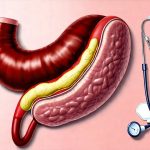Smoking remains a prevalent habit despite decades of public health warnings. While much attention is rightly given to its respiratory and cardiovascular effects, the often-overlooked consequences for digestive health are significant and widespread. Many people don’t realize how profoundly tobacco use can impact the entire gastrointestinal tract, from the mouth to the colon, contributing to discomfort, altering function, and potentially increasing the risk of various digestive disorders.
The connection between smoking and digestive issues isn’t always immediately obvious because symptoms often develop gradually or are attributed to other causes. This article aims to explore the ways in which smoking can disrupt digestive comfort, providing a comprehensive overview of its effects on different parts of the digestive system and highlighting potential consequences for overall well-being. Understanding these impacts is crucial not only for smokers themselves but also for healthcare professionals advising patients about lifestyle choices.
The Digestive System & Nicotine’s Influence
The digestive system is a remarkably complex network responsible for breaking down food, absorbing nutrients, and eliminating waste. Its efficient function relies on a delicate balance of chemical processes, muscle contractions, and hormonal signals. Nicotine, the primary addictive component in tobacco smoke, along with other chemicals present in cigarettes, profoundly interferes with this intricate system. It impacts motility (the movement of food through the digestive tract), acid production, blood flow, and even the gut microbiome – the community of microorganisms essential for healthy digestion.
The broad range of effects is partly due to nicotine’s impact on the nervous system, which regulates many digestive processes. Beyond nicotine, the numerous other chemicals in cigarette smoke also contribute to inflammation and damage throughout the gastrointestinal tract.
Smoking’s Impact on Specific Digestive Conditions
Smoking has been consistently linked to an increased risk of several serious digestive conditions, including peptic ulcers, Crohn’s disease, and colorectal cancer. While not a direct cause in all cases, it significantly exacerbates existing conditions and hinders healing processes. For instance, smokers with inflammatory bowel disease often experience more frequent flare-ups and require higher doses of medication to manage their symptoms. The impact extends beyond these well-known diseases, influencing the severity of common digestive complaints like heartburn and irritable bowel syndrome (IBS).
Heartburn & Acid Reflux
Smoking weakens the lower esophageal sphincter (LES), the muscle that prevents stomach acid from flowing back into the esophagus. This weakening allows acid to reflux more easily, leading to frequent heartburn and potentially progressing to gastroesophageal reflux disease (GERD). Furthermore, smoking increases stomach acid production itself, compounding the problem. The combination of these factors creates a vicious cycle where increased acid exposure irritates the esophageal lining causing inflammation and discomfort.
Smoking also delays gastric emptying – how quickly food moves from the stomach to the small intestine. This prolonged stay in the stomach can increase pressure on the LES, further contributing to reflux episodes. Many smokers report experiencing more frequent and severe heartburn symptoms after smoking a cigarette.
Ulcers & Gastric Motility
Smokers are at significantly higher risk of developing both gastric and duodenal ulcers. While Helicobacter pylori infection is a major cause, smoking impairs ulcer healing and increases the likelihood of recurrence. It reduces blood flow to the stomach lining, hindering its ability to repair damaged tissue. Additionally, smoking interferes with the effectiveness of medications used to treat ulcers.
The impact on gastric motility is also substantial. Nicotine can both speed up and slow down digestion depending on various factors, creating unpredictable patterns that contribute to discomfort. Irregular emptying rates can disrupt nutrient absorption and lead to bloating, nausea, and abdominal pain.
Inflammatory Bowel Disease (IBD) & the Gut Microbiome
Smoking is uniquely associated with an increased risk of developing Crohn’s disease, although it paradoxically appears protective against ulcerative colitis – another form of IBD. The reasons for this are complex and not fully understood, but they relate to how smoking influences the immune system and gut microbiome. Smokers with Crohn’s tend to have more severe disease courses, requiring more aggressive treatment and experiencing higher rates of complications like strictures and fistulas.
Cigarette smoke drastically alters the composition of the gut microbiome, reducing microbial diversity and promoting the growth of harmful bacteria. This imbalance disrupts the delicate ecosystem within the intestines, contributing to inflammation and impairing immune function. Restoring a healthy gut microbiome is crucial for managing IBD symptoms, but smoking actively hinders this process.
Ultimately, recognizing the impact of smoking on digestive comfort is an important step towards prioritizing overall health. While quitting smoking presents challenges, the benefits for digestive well-being – along with countless others – are substantial and far-reaching. Seeking support from healthcare professionals and utilizing available resources can greatly improve one’s chances of successfully breaking this harmful habit and improving their quality of life.


















